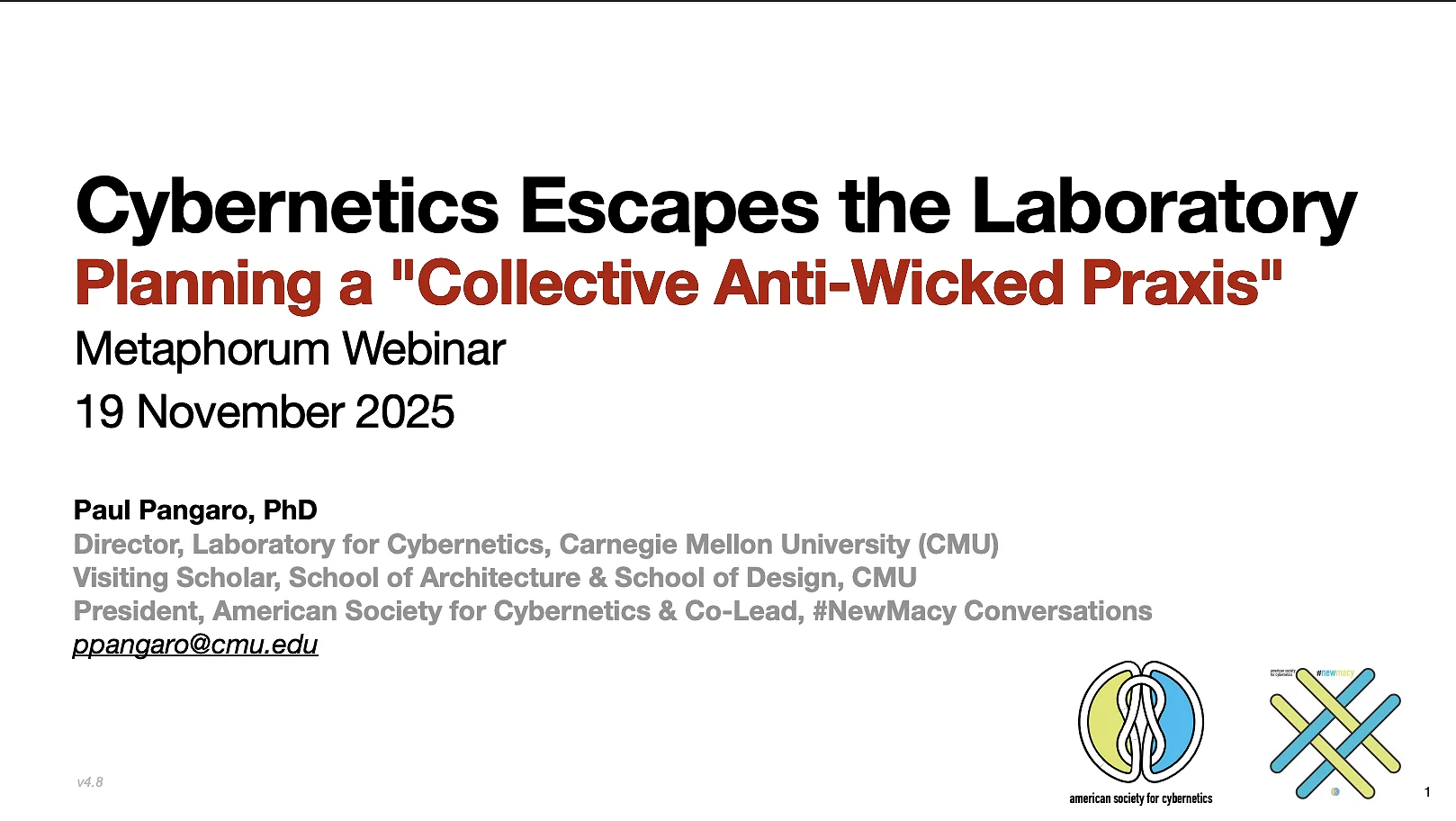
Recently the world was shaken by the COVID-19 epidemic. Consequences include the irrefutable recognition of countless pandemics—pan meaning all and demos meaning people joined collectively by common geography or any binding constraint. So many massive ills were at last conceded, spanning technology as well as biology, fomenting social tragedies through racism, social inequalities, and wars, while creating natural tragedies with climate change and for the ecosystem. Even before that transitional 2020 moment, Cybernetics, while much neglected, had been called out as something to revive, to teach, to practice, to
help a world gone wild. Now five years later, can Cybernetics hold those hints of redemption—to offer what other disciplines or rituals or frameworks cannot? This paper traces recent efforts to create a responsive and durable locus for Cybernetics on a university campus, in a format to serve the needs of student-scholars, whose passion for addressing wicked challenges was not yet matched by resources or collaborations fitting the scale of the confrontation or depth of their commitment.
A Laboratory for Cybernetics, founded within the School of Architecture at Carnegie Mellon University in Pittsburgh, Pennsylvania, offers foundational materials, emergent digital resources, and a nascent networking and collaborating platform to match students within world practitioners, while maintaining focus on the student’s worldview and interests. This constitutes a praxis for approaching complex adaptive systems, offering a proposal for how Cybernetics and wicked challenges may dance together—but with a twist. How might we incubate Cybernetics as its own living response to the wicked challenges of today? Can a laboratory instigate a world-wide experiment to advance what is possible for addressing wicked challenges? Can we flip the script of “gain of function” research—evolving “genetic” material to increase capacity, here for the greater good—by amplifying the capabilities of Cybernetics through collective “praxis-sourcing”—the gathering and application of concepts and materials, models and methods, networking and collaborating, without barriers of disciplines, geographies, or generations?
The paper closes with a call to action to the world-wide community as catalyst for today’s conversations at a new scale of audacity for creating an open-source, anti-wicked praxis of Cybernetics in response to the pandemics of our time.
Speaker Bio
 Paul Pangaro, PhDDirector, Laboratory for Cybernetics, Carnegie Mellon University (CMU)
Visiting Scholar, School of Architecture & School of Design, CMU
President, American Society for Cybernetics
Paul Pangaro, PhDDirector, Laboratory for Cybernetics, Carnegie Mellon University (CMU)
Visiting Scholar, School of Architecture & School of Design, CMU
President, American Society for Cybernetics
